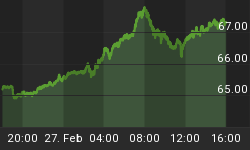Following a near melt-up in share prices at the beginning of this month, markets have suddenly become unstuck. Rattled in part by disappointing results from the likes of Intel, General Electric and Citigroup, as well as jitters over Iran and sharply higher oil prices, many investors are looking to take money off the table and head for safety.
Unfortunately, there are signs that some exits are becoming blocked. What that means is, those looking to cash out in the months ahead may soon discover that they are trapped -- with little or no way out.
Take last week's debacle in Japan. When word of an investigation at former high-flyer Livedoor unleashed a wave of selling by small investors, volume surged. That forced officials at the Tokyo Stock Exchange to halt trading early because of capacity constraints, despite the fact that the internet company's sub-$10 billion value paled in comparison to the $4 trillion capitalization of the overall market.
Then there are the problems in Germany. Since last month, two real estate mutual funds, with assets totaling $8 billion between them, have been forced to temporarily shut their doors to prevent runs by nervous investors. Under that country's rules, funds investing in property need only hold five percent of their assets in cash -- no doubt a problem if too many decide, as they have recently, to bail out all at once.
Doors are closing elsewhere, too. According to a recent report, one $12 billion U.S. hedge fund -- among others -- recently started enforcing longstanding policies designed to penalize investors seeking to withdraw more than a predetermined amount at one time. The reason for the sudden intransigence? Fears that investor nervousness over poor performance will spur a mass exodus.
In addition, several managers are using a loophole in new rules requiring hedge funds to register with the Securities and Exchange Commission as an excuse to tie up investors' assets for long periods of time. By capitalizing on a provision that allows funds with "lockups" greater than two years to be exempt from registration, these advisors end up killing two birds with one stone. And, perhaps, leaving investors high and dry.
Combine all this with the widespread and wide-eyed rush to invest in private equity funds, over-the-counter derivatives, thinly-traded securities, and a host of other illiquid assets, and it is not hard to see how numerous investors have struck something of a Faustian bargain.
That is, they have accepted the prospect of marginally higher returns in exchange for much greater risk -- and increasingly limited access to their money.
With the friction of higher interest rates, excessive leverage, volatile geopolitics and numerous earnings disappointments ratcheting up the temperature in world markets, what might once have been viewed as nothing more than a temporary inconvenience may turn out to be something else: a liquidity fire trap.
Let's hope no one gets too burned in the rush for the exits.















